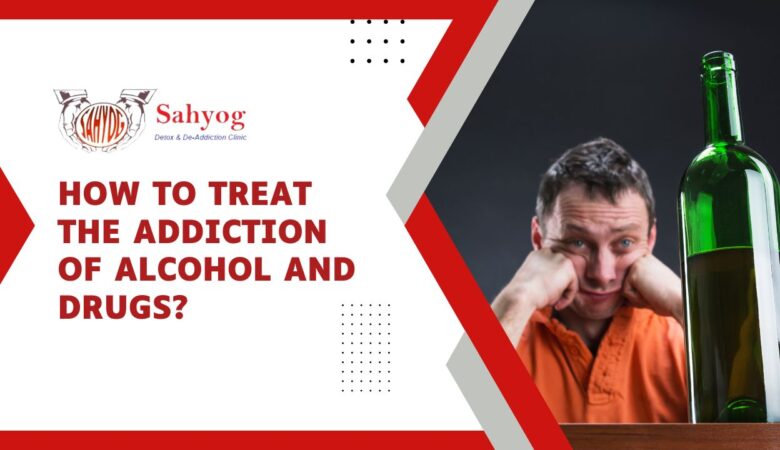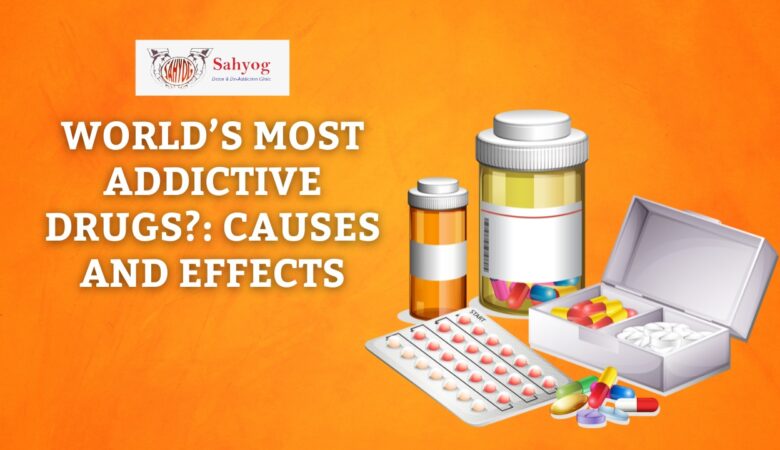How to treat the addiction of Alcohol and Drugs
Are you or a loved one struggling with alcohol or drug addiction? It’s time to take control and reclaim your life. Understanding the impact of addiction and finding effective treatment options is crucial in embarking on the journey towards recovery. In this blog post, we will explore how to treat alcohol and drug addiction, from recognizing the signs to overcoming relapses and staying sober. Let’s dive into this important topic together. Understanding Addiction and its Impact Addiction is a complex condition that affects both the brain and behavior. It is characterized by an inability to control substance use despite negative consequences. Individuals struggling with addiction may experience intense cravings, compulsive drug seeking, and a lack of interest in other activities. The impact of addiction extends beyond the individual, affecting relationships, work performance, and overall well-being. Substance abuse can lead to financial problems, legal issues, and deteriorating physical health. The cycle of addiction can feel overwhelming and isolating for both the person suffering from it and their loved ones. Understanding the nature of addiction is the first step towards recovery. By acknowledging the challenges it presents and seeking help from professionals, individuals can begin to break free from its grip. It’s essential to approach addiction with compassion, empathy, and a commitment to change for a brighter future ahead. Signs of Alcohol and Drug Addiction Alcohol and drug addiction can manifest in various ways, impacting not only the individual but also those around them. One common sign is a noticeable increase in tolerance, requiring more of the substance to achieve the same effect. This can lead to secretive behavior, where individuals may try to hide their consumption or lie about it. Physical symptoms such as changes in weight, sleep patterns, or hygiene can also indicate a problem. Mood swings, irritability, and sudden outbursts are often linked with substance abuse as well. Neglecting responsibilities at work or home is another red flag that shouldn’t be ignored. Social withdrawal or spending time with new groups of people could point towards an unhealthy coping mechanism. Keep an eye out for financial struggles due to prioritizing substances over necessities. Understanding these signs is crucial for early intervention and support before addiction spirals out of control. Seeking Professional Help: Treatment Options When it comes to overcoming alcohol and drug addiction, seeking professional help is crucial. There are various treatment options available to cater to individual needs and preferences. One common approach is therapy, where individuals can work with trained professionals to address underlying issues contributing to their addiction. Cognitive-behavioral therapy, for example, helps individuals identify triggers and develop coping strategies. Inpatient rehabilitation programs offer a structured environment for detoxification and intensive therapy. Outpatient programs provide flexibility for those who cannot commit to full-time residential care but still need support. Medication-assisted treatment combines medication with counseling and behavioral therapies for a comprehensive approach. Support groups like Alcoholics Anonymous or Narcotics Anonymous also play a significant role in recovery by providing peer support and accountability. Seeking professional help is a vital step towards breaking free from the cycle of addiction and rebuilding a healthy life. Lifestyle Changes to Support Recovery Making lifestyle changes is crucial in supporting recovery from alcohol and drug addiction. It’s important to prioritize self-care by incorporating healthy habits into your daily routine. Engaging in regular exercise not only benefits physical health but also improves mental well-being. Eating a balanced diet rich in nutrients can help restore the body’s natural balance, aiding in the recovery process. Avoiding triggers and environments that may tempt relapse is essential for maintaining sobriety. Finding new hobbies or interests can keep your mind occupied and provide a positive outlet for stress. Establishing a consistent sleep schedule promotes restorative rest, contributing to overall emotional stability. Building strong relationships with supportive individuals who understand your journey can offer encouragement during challenging times. Embracing mindfulness practices such as meditation or yoga can enhance resilience and foster inner peace amidst cravings or setbacks. Incorporating these lifestyle changes into your daily life can significantly support your recovery journey towards lasting sobriety. Importance of Support Systems Support systems play a crucial role in the journey towards recovery from alcohol and drug addiction. Having a strong network of family, friends, or support groups can provide the necessary encouragement and motivation to stay on track. These individuals offer emotional support, understanding, and guidance during difficult times. Connecting with others who have gone through similar experiences can create a sense of belonging and reduce feelings of isolation. Sharing struggles and successes with like-minded individuals fosters a sense of community and reinforces the idea that one is not alone in their battle against addiction. Furthermore, support systems can help individuals navigate challenges such as triggers or cravings by offering coping strategies and accountability. They serve as a safety net during vulnerable moments, preventing relapses and promoting long-term sobriety. In essence, surrounding oneself with positive influences who genuinely care about their well-being is instrumental in maintaining sobriety. The collective strength of a support system provides hope, resilience, and empowerment to overcome obstacles on the path to recovery. Overcoming Relapses and Staying Sober Relapses can be a challenging part of the recovery journey. It’s important to remember that setbacks are a common experience for many individuals working towards sobriety. Instead of viewing relapse as a failure, see it as an opportunity to learn and grow stronger. Staying sober requires resilience and commitment. Develop coping strategies to navigate triggers and temptations effectively. Surround yourself with positive influences who support your sobriety goals. Acknowledge any slip-ups without being too hard on yourself. Use relapses as a chance to reassess your recovery plan and make necessary adjustments. Keep in mind that progress is not always linear – it’s okay to stumble along the way. Seek guidance from professionals or attend support groups if you find yourself struggling with staying sober after a relapse. Remember, every day is a new opportunity to reaffirm your commitment to sobriety and take steps towards a healthier, fulfilling life ahead.


